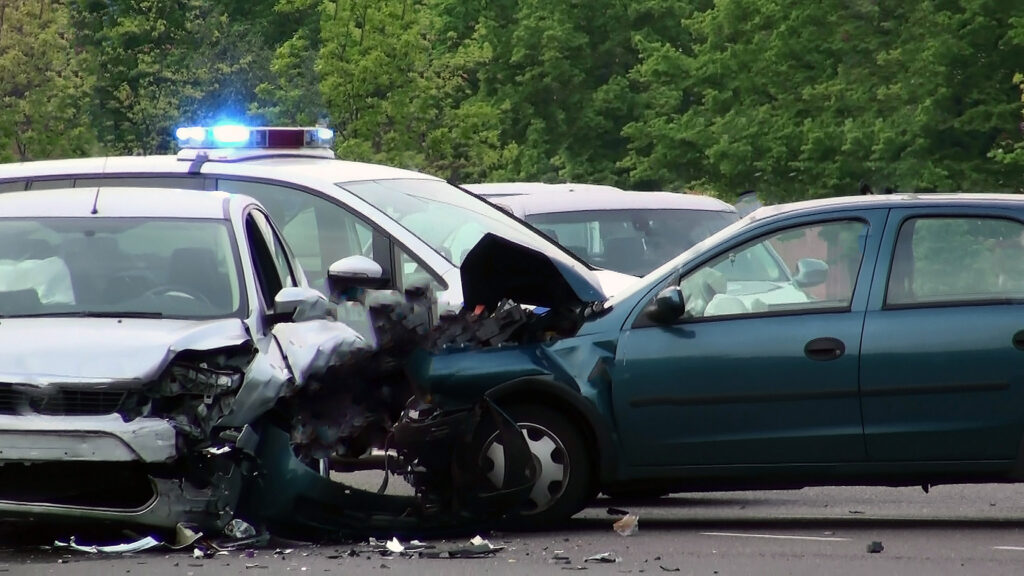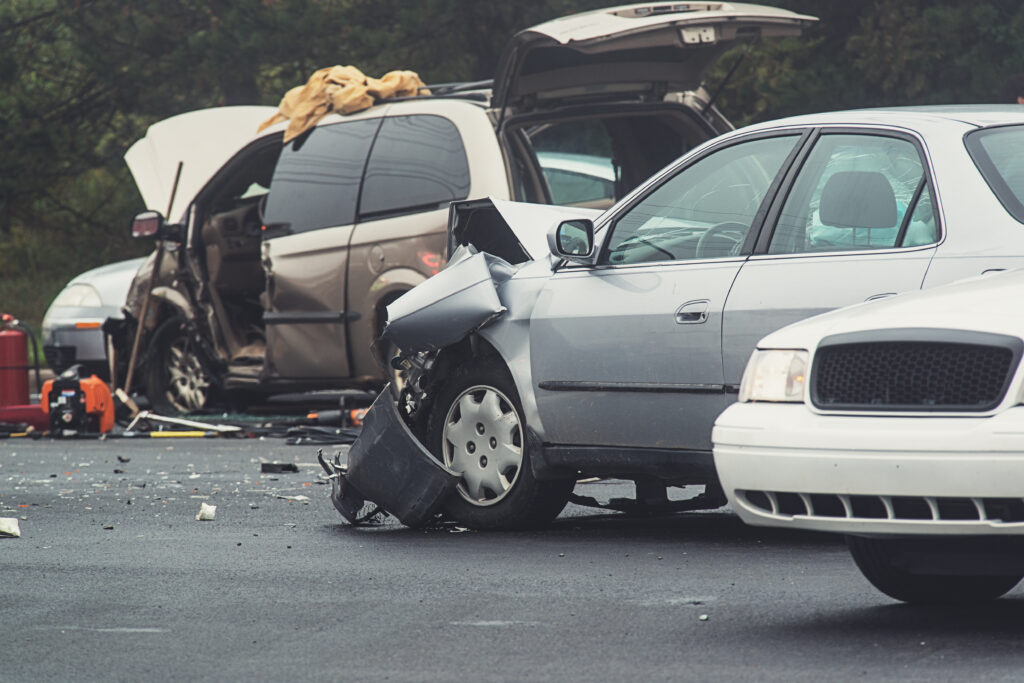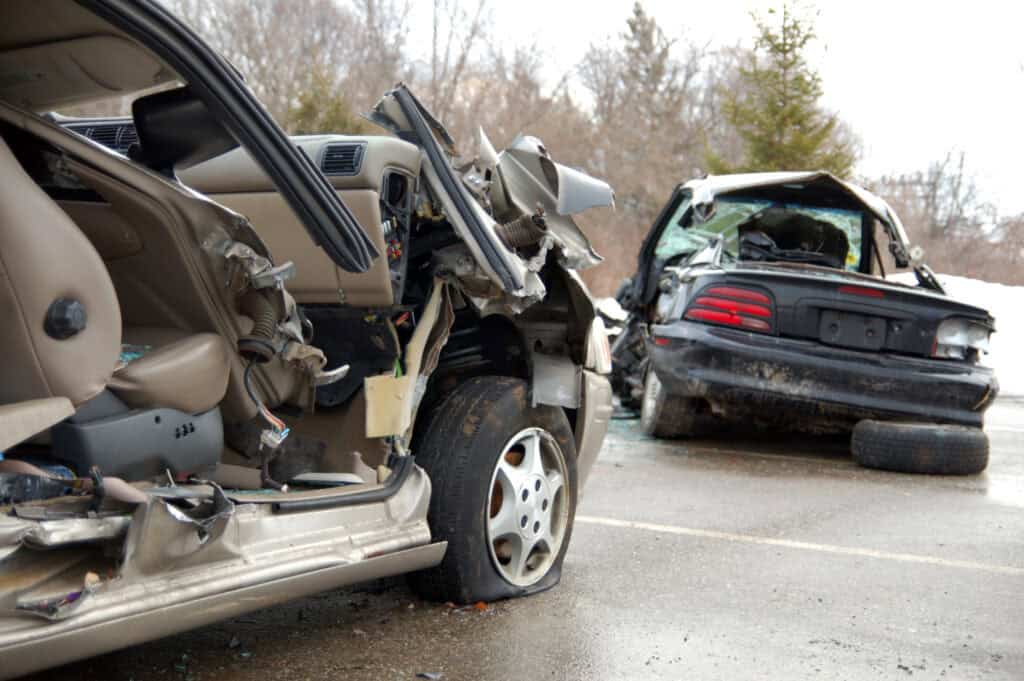Whose Insurance Pays in a Multi-Car Accident in Indiana?
Determining whose insurance pays in a multi-car accident in Indiana can be complex, as it depends on the circumstances of the accident and the state’s fault-based insurance system. Indiana follows a comparative fault rule, meaning that liability is assigned based on each driver’s level of responsibility for the accident. Understanding how fault is determined and how insurance coverage is applied is crucial for anyone involved in a multi-car collision.
If you’ve been injured in a multi-vehicle accident, Doehrman Buba Ring is ready to help you get the justice and fair compensation you deserve. Our experienced car accident attorneys understand the complexities of Indiana’s fault-based insurance system and are dedicated to advocating for your rights.
From gathering evidence to negotiating with insurance companies or presenting your case in court, we are committed to guiding you through every step of the legal process. Contact us today for a free consultation and take the first step toward securing the compensation you need to recover and move forward.

What Is a Multiple-Car Accident?
A multiple-car accident, commonly referred to as a chain-reaction accident or pile-up accident, involves three or more vehicles colliding. Multi-vehicle collisions can occur in various ways, depending on the circumstances and driving conditions. Some common types include:
- Chain Reaction Rear-End Collisions
This type of accident happens when one car rear-ends another, causing a chain reaction where multiple vehicles are struck. These incidents often occur in areas with sudden traffic slowdowns or poor visibility.
- Intersection Multi-Vehicle Collisions
These accidents happen when multiple vehicles collide at an intersection due to failures to yield, running red lights, or misjudging oncoming traffic.
- Highway Pile-Ups
These large-scale accidents typically occur on high-speed roadways, often involving dozens of vehicles. Factors like fog, ice, or sudden stops can significantly contribute to dangerous pile-ups.
- Side-Impact Collisions
Multi-vehicle side-impact accidents occur when the force of an impact pushes a struck vehicle into other nearby cars. These are common at intersections or in parking lots with closely spaced vehicles.
- Multi-Directional Collisions
These accidents involve impacts from several directions and often result from vehicles losing control in heavy traffic or adverse weather conditions.
Understanding the different types of multi-vehicle collisions can help drivers stay alert and practice defensive driving to reduce their risk of being involved in such events.

What Are the Common Causes of Multi-Car Accidents?
Understanding the causes of multi-car accidents is crucial in preventing these dangerous and often catastrophic events. Below are some of the most common causes:
Distracted Driving
Distracted driving, such as texting, eating, or adjusting in-car controls, is one of the leading causes of chain-reaction accidents. When a distracted driver’s focus shifts away from the road, even for a few seconds, the likelihood of a collision increases significantly.
Tailgating
Following too closely behind another vehicle reduces the time and space needed to react to sudden changes in traffic, such as unexpected braking. This behavior often contributes to rear-end collisions, which can quickly involve multiple cars.
Adverse Weather Conditions
Rain, snow, fog, and ice can create hazardous driving conditions by reducing visibility and making roads slick. Drivers failing to compensate for these conditions by slowing down or maintaining proper distances can trigger large-scale accidents.
Speeding
Driving above the speed limit or too fast for current road conditions makes it harder for drivers to maintain control of their vehicles or stop in time to prevent a crash. High-speed collisions often result in severe pile-ups due to the force of impact.
Sudden Lane Changes
Abrupt or reckless lane changes can catch other drivers off guard, causing panic braking or swerving and leading to a chain-reaction incident, especially on highways or congested roads.
Impaired Driving
Driving under the influence of alcohol, drugs, or fatigue significantly impairs reaction time and decision-making abilities. Impaired drivers are far more likely to cause accidents that involve multiple vehicles.
Road Hazards or Poor Infrastructure
Issues such as potholes, debris, or poorly designed roadways can result in erratic driving behaviors or loss of control, contributing to multi-car accidents.
By identifying and addressing these common causes, drivers can take proactive measures to reduce the risk of becoming involved in a multi-car accident.
How Is Fault Determined in a Multiple-Vehicle Accident?
In Indiana, determining fault in a multiple-vehicle accident can be particularly challenging due to the number of drivers and variables involved. Factors such as speed, following distance, and adherence to traffic laws are all assessed when investigating these collisions. Understanding the dynamics of multiple-car accidents is essential, as they can result in extensive property damage, complex legal disputes, and significant injuries.
Fault determination in a multiple-vehicle accident often involves gathering extensive evidence to piece together the chain of events. Law enforcement officers typically play a critical role in this process, collecting witness statements, analyzing skid marks, and reviewing traffic camera footage if available.
In multi-car rear-end collisions, the fault is typically assigned based on the specific circumstances of the accident. Generally, the at-fault driver is the one who initiates the initial collision, as they failed to maintain a safe following distance or were inattentive to traffic conditions. However, in multi-car pileups, determining fault can become more complex, as each driver involved may bear partial responsibility.
Additionally, insurance company adjusters may conduct their own investigations, inspecting vehicle damage and speaking with the involved parties. Factors such as which driver initiated the collision and whether any drivers were under the influence or distracted are closely examined. Ultimately, liability may fall on one individual or be shared among several drivers, depending on the circumstances.
What Happens if Multiple Drivers Are At Fault?
In Indiana, which follows a modified comparative fault system, determining fault in a multi-car accident where multiple drivers share responsibility can become complex. Under Indiana law, each party’s degree of fault is assessed as a percentage.
Drivers who are found to be more than 50% at fault for the accident are typically unable to recover damages from other involved parties. However, if a driver is less than 50% at fault, they can pursue compensation, but the total amount they receive will be reduced by their percentage of fault.
How Do I File a Personal Injury Claim After a Multi-Car Accident in Indiana?
Filing a personal injury claim after a multi-vehicle accident in Indiana involves several crucial steps. First, it is essential to gather evidence at the accident scene, including photographs, witness statements, and police reports. This documentation can help establish the sequence of events and identify the liable parties.
Next, seek immediate medical attention, even if injuries appear minor, as medical records are vital in proving the extent of damages. Afterward, notify your insurance company about the accident, but avoid making detailed statements until you have consulted with a personal injury attorney.
An experienced attorney can guide you through the process, ensuring that your rights are protected and assisting with negotiations with insurance companies. Additionally, they can help you calculate the full value of your claim, considering medical expenses, lost wages, and pain and suffering. Since Indiana operates under a modified comparative fault rule, having legal representation can be instrumental in navigating disputes over fault and securing fair compensation.
What Kind of Evidence is Needed for a Personal Injury Claim After a Multi-Car Accident?
When filing a personal injury claim after a multi-car accident, gathering strong and relevant evidence is crucial to building a solid case. This evidence serves to establish fault, demonstrate the extent of injuries, and support the compensation you are seeking. Due to the complexity of multi-vehicle accidents, it’s imperative to collect detailed and accurate documentation to ensure accountability and clarity in your claim.
Types of Evidence Needed for a Personal Injury Claim
Police Reports
One of the most critical pieces of evidence is the official police report from the scene of the accident. This report typically contains details about the incident, statements from involved parties, and potentially the officer’s assessment of who is the at-fault driver. It serves as an impartial and authoritative account of the accident, which can be instrumental in your claim.
Photographs and Videos
Visual evidence is invaluable when filing a personal injury claim. Take clear photographs of the accident scene, vehicle damages, road conditions, traffic signs, and any visible injuries. Videos capturing the aftermath of the accident can also help to reconstruct the chain of events, providing further clarity into what occurred.
Witness Statements
Eyewitness accounts often carry significant weight in personal injury claims. If bystanders or other drivers witnessed the accident, their statements can corroborate your version of events. Be sure to collect names and contact information from witnesses at the scene.
Medical Records and Bills
Documenting your injuries is essential to securing fair compensation. Obtain your medical records, including any diagnoses, treatment plans, and doctor’s notes. Additionally, retain all medical bills and receipts as proof of the financial impact of your injuries.
Insurance Information
Exchange insurance information with all parties involved in the accident. This includes obtaining their policy numbers and the name of their insurance providers. This information will be vital when filing a claim and determining the liability of each party.
Expert Testimony
Sometimes, expert testimony is needed to strengthen a claim, especially in complex multi-car accidents. Accident reconstruction experts, medical professionals, or financial analysts can provide technical insights that help establish fault or quantify damages.
Personal Notes and Journal
Keeping a detailed account of how the accident has impacted your life can support your claim for non-economic damages, like pain and suffering. Writing down details such as missed workdays, emotional distress, and physical limitations can provide a comprehensive view of your post-accident experience.
Surveillance Footage or Dash Cams
If available, footage from nearby traffic cameras, business surveillance systems, or dash cams can provide an unbiased visual record of the accident. This type of evidence can be pivotal in illustrating how the crash unfolded.
How Will an Indiana Car Accident Attorney Help Me?
An Indiana car accident attorney can provide invaluable support throughout the claims process, ensuring your rights are protected and your case is handled effectively. From investigating the accident and gathering evidence to negotiating with insurance companies, an attorney brings expertise, experience, and advocacy to help maximize your compensation. They can also guide you through the legal complexities, giving you peace of mind while you focus on recovery.
Investigating the Accident
An attorney will conduct a thorough investigation into the details of your accident. This includes collecting evidence such as police reports, witness statements, and any available video footage to build a strong case in your favor.
Determining Liability
They will work to identify all parties responsible for the accident, which may include other drivers, vehicle manufacturers, or even government entities, ensuring all liable parties are held accountable.
Navigating Insurance Claims
An attorney can handle communication and negotiation with insurance companies on your behalf. They will fight for a fair settlement, protecting you from lowball offers and ensuring your rights are upheld.
Calculating Compensation
Your attorney will calculate the full extent of your damages, taking into account medical expenses, lost wages, property damage, and pain and suffering to pursue the maximum compensation you deserve.
Representing You in Court
If a fair settlement cannot be reached, an attorney is prepared to advocate for you in court. They will present a compelling case to a judge and jury, striving to secure the best possible outcome.
Hiring an Indiana car accident attorney ensures you have a dedicated professional handling your case, allowing you to focus on your recovery.
How Do I Find an Experienced Car Accident Lawyer in Indiana?
At Doehrman Buba Ring, our experienced team of car accident lawyers is dedicated to helping clients in Indiana secure the compensation they deserve. With years of expertise in handling complex car accident claims, including multi-vehicle accidents, we are committed to providing personalized and effective legal representation.
Our attorneys understand the challenges you may face after an accident and are here to guide you through every step of the legal process. From negotiating with insurance companies to arguing your case in court, we will work tirelessly to fight for your rights and get you the best possible outcome. Contact Doehrman Buba Ring today for a free consultation and discover how we can assist you in navigating your car accident case



